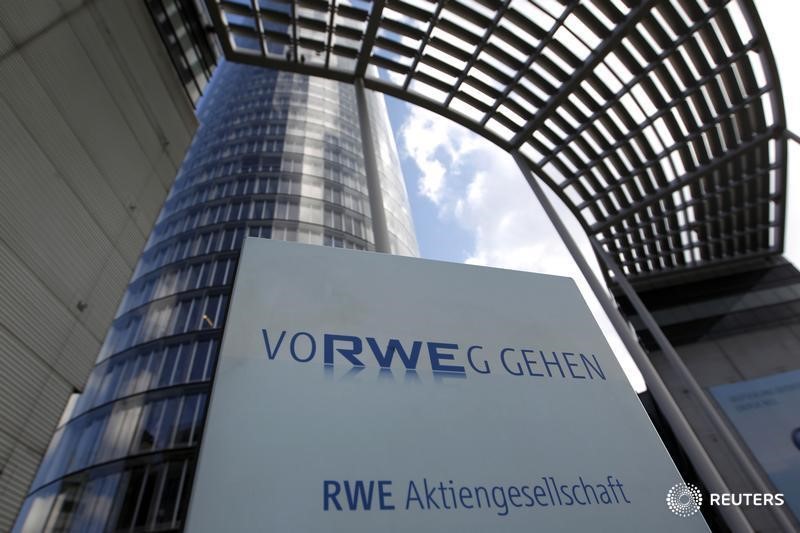By Christoph Steitz
FRANKFURT (Reuters) - German utility RWE (DE:RWEG) moved to restructure its businesses to better absorb the cost of nuclear plant closures on Tuesday, sending its shares up nearly 17 percent, their biggest one-day gain in seven years.
To extract funds from its healthier businesses, Germany's second-biggest utility will hive off its renewables, grids and retail units into a separate entity and sell a 10 percent stake in an initial public offering late next year.
It said it would keep its conventional power generation business, including its remaining nuclear plants and the liability for their shutdown, hoping to avoid a political stand-off over nuclear provisions that led peer E.ON (DE:EONGn) to backtrack on a similar plan.
RWE's Chief Executive Peter Terium was tight-lipped as to why the group decided to split now, a year after larger peer E.ON said it would spin off power plants, energy trading and oil and gas activities into a separate unit, Uniper.
Analysts, however, said RWE's plan should ease concerns in Berlin, which has been worried that utilities would not honour the costs of Germany's policy to close its nuclear plants by 2022. Political pressure forced E.ON to change its plans and take back its German nuclear plants along with the 16.6 billion euros (£11.7 billion) in provisions.
"I think that Terium is responding to the most recent political developments. At E.ON there was a certain race for liability, which the company lost," said Thomas Deser, senior fund manager at Union Investment, which holds 1.45 million RWE shares.
"With his plan, Terium avoids this conflict."
RWE said it could sell further stakes in the new subsidiary at some point, but added it would remain the unit's majority shareholder over the long term.
Shares in RWE, Germany's biggest electricity producer, closed up 16.6 percent, their biggest one-day gain since October 2008.
The shares had tumbled more than 50 percent this year, reflecting declining profitability in German utilities' conventional power businesses.
NUCLEAR EXIT
Squeezed by a decline in wholesale power prices and a surge in renewables, German utilities are struggling to make money operating coal- and gas-fired power plants.
In addition to falling prices, the utilities have suffered from concerns over their ability to come up with as much as 80 billion euros in combined funding to pay for shutting down the country's nuclear plants by 2022.
RWE said the group's new set-up would not impact its nuclear liabilities, pledging it would stand by its responsibility to bear all the costs connected to the shutdown of its plants.
"On the contrary, the shares of the new subsidiary will be an asset that will make it easier for us to fund provisions in the future if necessary, whatever the circumstances," Terium said.
RWE said the new unit, which will begin operations as an independent company in the course of 2016, would employ about 40,000 of the group's 60,000 staff and has core EBITDA earnings of more than 4.3-4.5 billion euros, based on pro-forma figures for 2015.
For the group as a whole, RWE forecasts 2015 EBITDA of 6.1-6.4 billion euros.

Goldman Sachs is advising RWE on the split, two people familiar with the matter told Reuters.